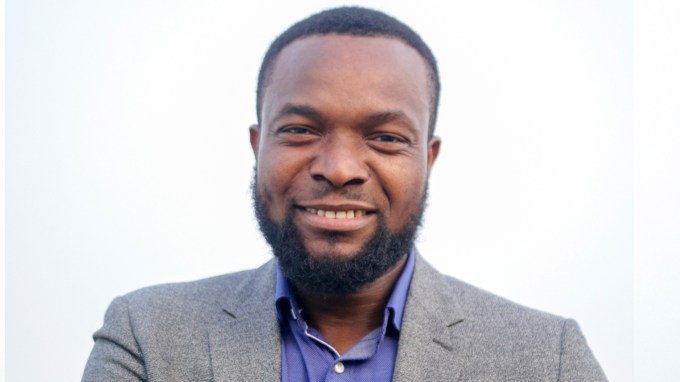Flipdish, the online ordering and loyalty platform for takeaways and restaurants, has closed a €4.8 million in Series A funding. The round is led by Rocket Internet’s Global Founders Capital, with participation by existing investor Elkstone.
Founded in 2015, Flipdish enables restaurants to directly accept online orders and manage their online presence and operations, in a bid to help wean them off over reliance (or order hijacking) by takeout marketplaces and aggregators, such as Just Eat or Deliveroo.
Specifically, the Irish startup enables individual restaurants and restaurant chains to compete with takeout aggregators by accepting online orders directly from customers with “lower costs and a higher control over the customer experience”. The proposition is similar to a crop of new startups that are helping hotels secure more direct bookings online rather than perpetually giving away a large part of their margins to the likes of Booking.com.
“In the last 10 years there’s been a sudden shift in the importance of technology: people who used to phone takaways to place orders, now will only order online,” Flipdish CEO Conor McCarthy tells me.
“The largest food companies are able to facilitate this by putting huge resources into development, but small and medium businesses aren’t able to put millions of euro into developing their own software. We are levelling the playing field by making this technology available to all sized businesses and giving them the tools to compete and win online.

Those tools include an online loyalty system and ordering platform, which comes with automated re-marketing and retention features. “Ensuring that this is all automated means the restaurants and takeaways can focus on creating great food and we will take care of their online presence,’ adds McCarthy.
Noteworthy is that Flipdish isn’t generating revenue through a subscription-based offering. Instead, it charges a fee for each order placed through the platform. The idea is that the success of restaurants offering direct online ordering is tied to Flipdish’s own success
“If they don’t receive online orders, then we don’t make any money,” quips the Flipdish CEO. “I think this structure sets us apart from our competitors. Companies who charge a flat fee are incentivised to do as much as possible to sign up customers but have little incentive to help them receive orders. Like gyms are incentivised to sign up as many customers as possible but don’t actually want them use the gym”.
On that note, McCarthy argues that Flipdish’s biggest competitor is still the telephone line, as a significant portion of takeaways aren’t aware yet that there are affordable online ordering platforms out there and so rely on customers phoning them. In the software space, Olo and ChowNow are also well-funded direct competitors.
Meanwhile, Flipdish says the latest funding round comes on the back of “outstanding growth” this year with revenue up more than 3x compared to 2017, although without breaking out the numbers this is pretty meaningless. With that said, the company is disclosing that it currently powers over one thousand restaurants across Europe and has enabled more than €25 million in online orders to date.
To that end, Flipdish says the new funding will be used to help accelerate growth by building out its product line and delivering greater service to its expanding worldwide customer base.





 Jason Njoku is the founder and CEO of Iroko, the home of Nollywood content. He has pioneered the African digital content market by bringing Nollywood (Nigerian cinema) to a global audience, and in the process has raised more than $40 million in investment from international VCs, including Tiger Global, Kinnevik, RISE Capital and Canal+.
Jason Njoku is the founder and CEO of Iroko, the home of Nollywood content. He has pioneered the African digital content market by bringing Nollywood (Nigerian cinema) to a global audience, and in the process has raised more than $40 million in investment from international VCs, including Tiger Global, Kinnevik, RISE Capital and Canal+. Dapo Olagunju is head of West Africa at J.P. Morgan. In this capacity, he represents J.P. Morgan’s global platform to clients, regulators and other stakeholders in the region.
Dapo Olagunju is head of West Africa at J.P. Morgan. In this capacity, he represents J.P. Morgan’s global platform to clients, regulators and other stakeholders in the region. Konstantinos Papamiltiadis is the director of developer platforms and programs for Facebook, supporting the company’s product and platform strategy through partnerships with technology companies and programs for startups.
Konstantinos Papamiltiadis is the director of developer platforms and programs for Facebook, supporting the company’s product and platform strategy through partnerships with technology companies and programs for startups. Bosun Tijani is the co-founder and CEO of Co-Creation Hub, a social innovation center based in Nigeria dedicated to accelerating the application of social capital and technology for economic prosperity. In pursuit of an active lifestyle, he also founded and serves as the CEO and founder of Truppr, an emerging fitness brand in Africa that connects users to fitness events across the world. In addition, he is a partner at Growth Capital, Nigeria’s first social innovation fund for high-potential, early-stage businesses.
Bosun Tijani is the co-founder and CEO of Co-Creation Hub, a social innovation center based in Nigeria dedicated to accelerating the application of social capital and technology for economic prosperity. In pursuit of an active lifestyle, he also founded and serves as the CEO and founder of Truppr, an emerging fitness brand in Africa that connects users to fitness events across the world. In addition, he is a partner at Growth Capital, Nigeria’s first social innovation fund for high-potential, early-stage businesses.